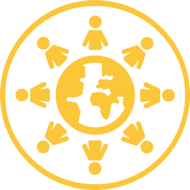
(View Complete Item Description)
As part of Washington's Kip Tokuda Memorial Civil Liberties Public Education Program, which strives to educate the public regarding the history and the lessons of the World War II exclusion, removal, and detention of persons of Japanese ancestry, KSPS Public Television and Eastern Washington educators Starla Fey, Leslie Heffernan, and Morgen Larsen have produced Injustice at Home: the Japanese American experience of the World War II Era.
This educational resource--five educational videos and an inquiry-based unit of study--will help students understand Executive Order 9066 and the resulting internment of Japanese-Americans during World War II, the failure of political leadership to protect constitutional rights, the military experience of Japanese-Americans during WWII, and examples of discrimination and racial prejudice the Japanese-American community faced before, during and after WWII.
In addition, students will analyze the short and long term emotional effects on those who are incarcerated, identify the challenges that people living outside of the exclusion zone faced, examine how some Japanese Americans showed their loyalty during the period of incarceration, and learn about brave individuals who stood up for Japanese Americans during this time.
Material Type:
Lesson,
Unit of Study
Authors:
KSPS Public Television,
Leslie Heffernan,
Morgen Larsen,
Starla Fey



















